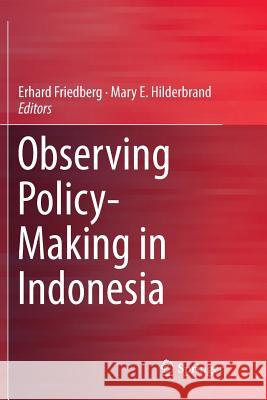Observing Policy-Making in Indonesia » książka
topmenu
Observing Policy-Making in Indonesia
ISBN-13: 9789811095719 / Angielski / Miękka / 2018 / 232 str.
Kategorie BISAC:
Wydawca:
Springer
Język:
Angielski
ISBN-13:
9789811095719
Rok wydania:
2018
Wydanie:
Softcover Repri
Ilość stron:
232
Waga:
0.35 kg
Wymiary:
23.39 x 15.6 x 1.32
Oprawa:
Miękka
Wolumenów:
01
Dodatkowe informacje:
Wydanie ilustrowane











